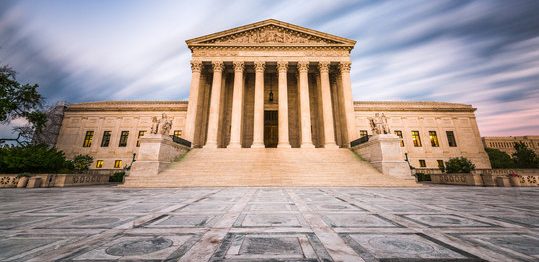In 2020, the Supreme Court of Michigan heard a case with outrageous facts. Uri Rafaeli, who purchased a home in 2011 for $60,000, was short $8.41 (plus $2.26 in interest and fees) in property taxes. As a result, Oakland County foreclosed on the home and sold it at auction to a third party for $24,500. Based on common sense, you would probably expect that the County refunded Rafaeli the $24,989.33 surplus, right? Nope, the County kept it.
Rafaeli sued, claiming that it was an unconstitutional taking without just compensation.
The trial court ruled in favor of the County, finding that it did not “take” Rafaeli’s property because he had forfeited all interest in the property when he failed to pay taxes. The Court of Appeals affirmed.
In a thoughtful opinion by Justice Zahra, the Supreme Court of Michigan reversed, ruling that Oakland County’s retention of the surplus proceeds was an unconstitutional taking. The Court reasoned that at Michigan’s founding, it was “commonly understood” that the government “could not collect more in taxes than what was owed, nor could it sell more land than necessary to collect unpaid taxes.” The Court also noted that in the context of eminent domain, the government cannot take more property than necessary for the particular public use for which the property is taken.
It is worth noting that the Court based its decision on Michigan constitutional law and noted that “Michigan’s Takings Clause has been interpreted to afford property owners greater protection than its federal counterpart when it comes to the state’s ability to take private property for a public use under the power of eminent domain.” Rafaeli, LLC v. Oakland Cnty., 505 Mich. 429, 454 (2020) (citing Wayne County v. Hathcock, 471 Mich. 445 (2004), a case in which my dad successfully argued that economic development is not a valid “public use” for a taking as a matter of state constitutional law). The Court based its decision on state law, in part, because the Supreme Court has not squarely ruled in favor of property owners in this situation. Hopefully, that is about to change!
Today, the Supreme Court (of the United States) will hear oral arguments in Tyler v. Hennepin County, a case with similar facts. In 2015, Geraldine Tyler, the petitioner, owed $2,300 in property taxes (along with roughly $12,700 more in penalties, interests, and costs) on her condo in Hennepin County, which is in Minnesota. The County then foreclosed on the property, sold it for $40,000, and retained the surplus. Tyler sued, arguing that the foreclosure and sale violated the Takings Clause and the Excessive Fines Clause. So far, the federal district and circuit courts have ruled in favor of the County.
Hopefully, common sense and fairness prevail. You can follow the case here.

